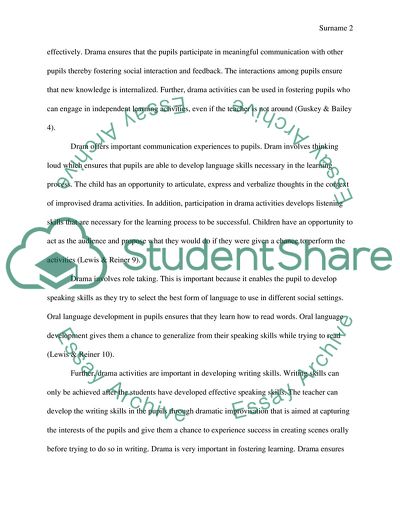Cite this document
(How can drama be used to motivate pupils' geographical learning of Essay Example | Topics and Well Written Essays - 1500 words, n.d.)
How can drama be used to motivate pupils' geographical learning of Essay Example | Topics and Well Written Essays - 1500 words. https://studentshare.org/education/1777132-how-can-drama-be-used-to-motivate-pupils-geographical-learning-of-crime-within-key-stage-3-geography-lessons
How can drama be used to motivate pupils' geographical learning of Essay Example | Topics and Well Written Essays - 1500 words. https://studentshare.org/education/1777132-how-can-drama-be-used-to-motivate-pupils-geographical-learning-of-crime-within-key-stage-3-geography-lessons
(How Can Drama Be Used to Motivate pupils' Geographical Learning of Essay Example | Topics and Well Written Essays - 1500 Words)
How Can Drama Be Used to Motivate pupils' Geographical Learning of Essay Example | Topics and Well Written Essays - 1500 Words. https://studentshare.org/education/1777132-how-can-drama-be-used-to-motivate-pupils-geographical-learning-of-crime-within-key-stage-3-geography-lessons.
How Can Drama Be Used to Motivate pupils' Geographical Learning of Essay Example | Topics and Well Written Essays - 1500 Words. https://studentshare.org/education/1777132-how-can-drama-be-used-to-motivate-pupils-geographical-learning-of-crime-within-key-stage-3-geography-lessons.
“How Can Drama Be Used to Motivate pupils' Geographical Learning of Essay Example | Topics and Well Written Essays - 1500 Words”. https://studentshare.org/education/1777132-how-can-drama-be-used-to-motivate-pupils-geographical-learning-of-crime-within-key-stage-3-geography-lessons.


